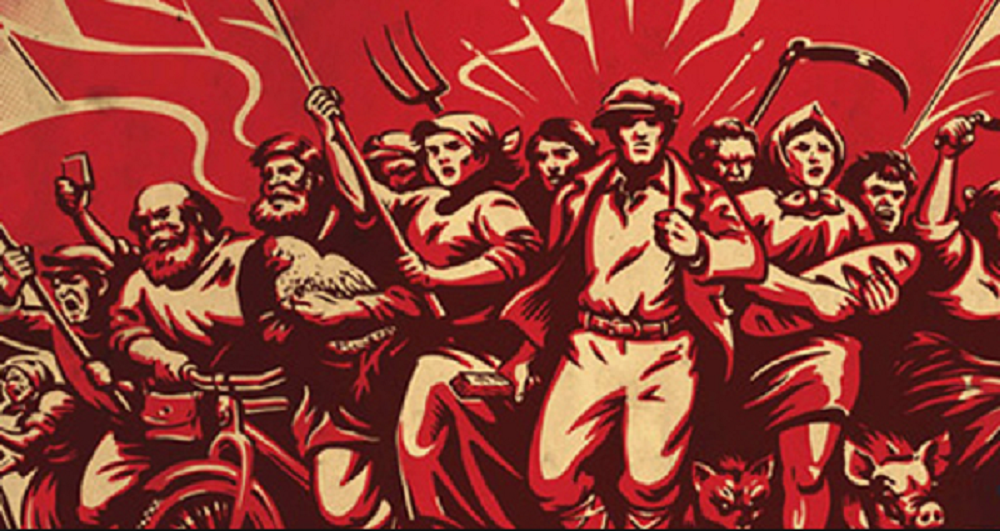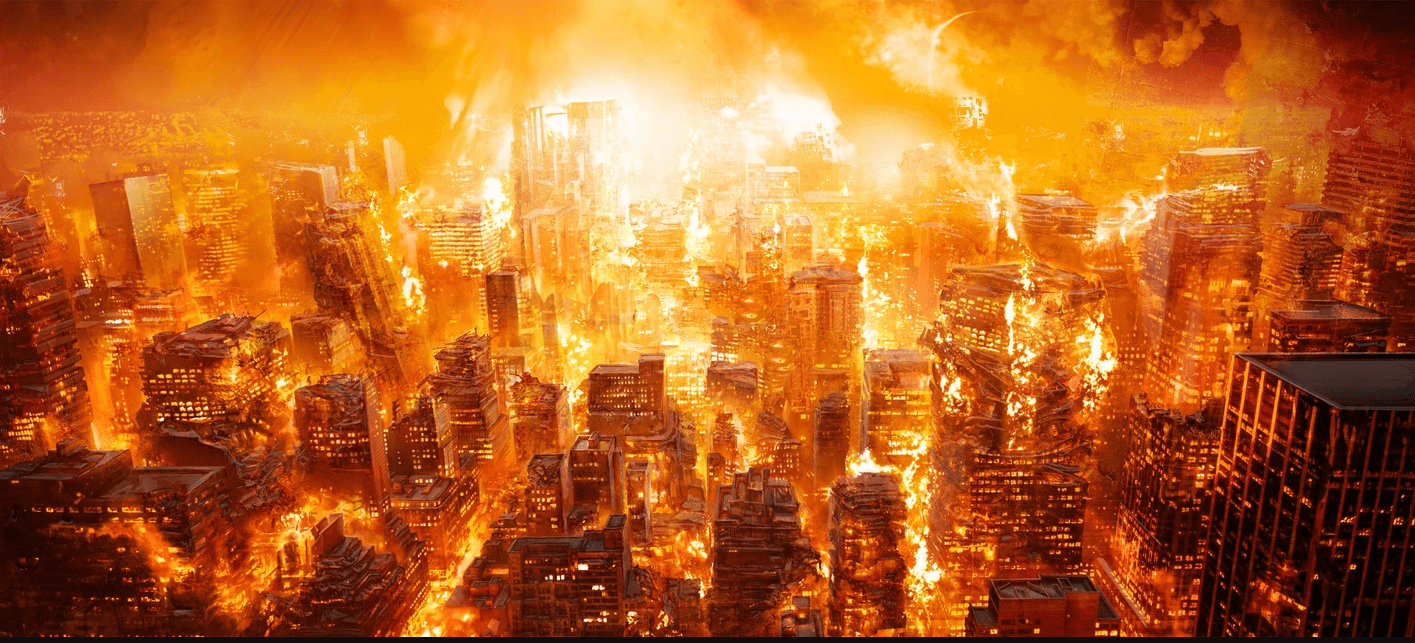According to Marx
“The proletarians cannot become masters of the productive forces of society, except by abolishing their own previous mode of appropriation, and thereby also every other previous mode of appropriation. They have nothing of their own to secure and to fortify; their mission is to destroy all previous securities for, and insurances of, individual property.”
The answer is to destroy everything?
Seems counter-productive, don’t you think?
Why would someone even think this is a good idea, let alone suggest it?
Why would someone even carry it out?
Only those of low education and understanding, Marx it seems, doesn’t have a high opinion of those he thinks should run things, unless of course they are being controlled by someone who they do their bidding for.
If you have means and own property and someone tells a bunch of people that the only way we can become equal is by destroying property, what do you think they are going to do?
The elites have property and means, and generally more than everyone, yet they are conspicuously absent from them again.
Page 19 offers something yet again.
”Society can no longer live under this bourgeoisie, in other words, its existence is no longer compatible with society,”
What society does he mean?
More importantly, what does he mean?
Does Marx want to go back to the days of feudal lords and peasants?
What benefit does that have to anyone in modern society?
Is its existence is no longer compatible with society? Yes, if you are an elite and what to keep the status quo.
Page 20, the Communists are interested:
“In the national struggles of the proletarians of the different countries”
A noble cause, but kind of huge, given the technology of 1848.
Today, it would be easy to create a global organization all from the comfort of your own home, yet in 1848 Marx is thinking globally when most people probably aren’t.
What would something like this take? Money, time, and effort, absolutely, but it would also require bodies.
There would have to be I would think hundreds if not thousands of people in every country all working towards the same goal.
If true, this somehow doesn’t strike me as a proletarian uprising or revolution.
One would need time, and a lot of it, at least a few are doing this full-time, I would imagine.
They have to live, which means they are being paid.
Who then is paying them for the pleasure of building a party?
Note the need for the Communists to form
“…the proletariat into a class”
This is first before they achieve their goals of conquest and power.
A class is fine all things considered, but within this class that apparently needs to gain power, it is an impossibility for a hundred or a thousand people to suddenly have a hive mind and have a single purpose and execution of a plan.
Someone will need to be in charge, and if they achieve their goals, isn’t it likely that the person in charge is going to be the person who is now in charge of the political power?
Isn’t that anathema to what the communists believe?
It seems to me the amount of churn something like this would create would be enormous and completely counter-productive, but who benefits from such a situation?
Not the bougioise because they are the ones who’ve had all their property destroyed and are laying in the ditch as the “unwashed masses” take power.

Again, isn’t it curious that there is no talk of the elites?
How long do you think it would take for a level of corruption to enter an organization that would tarnish it’s goals or ideals?
On to page 21 Marx plainly states:
“Abolition of private property”
In the vernacular of 2022 “You will own nothing and be happy”
Curious how all the sycophants, tell us we are wrong, when a stated goal of the Communist Manifesto is just that.
Just remember, the only way you have equal rights to economic resources is if all of us don’t have any.
But why would I love it?
Why is abolishing private property a good thing?
I guess at least Marx is internally coherent.
The proletariat burn everything to the ground so there is no private property.
Instead, according to how I understand what I’m reading are we to believe that only a few things shared amongst everyone will be better because according to Marx wage-labour doesn’t create property.
“It creates capital, i.e., that kind of property which exploits wage-labour, and which cannot increase except upon condition of begetting a new supply of wage-labour for fresh exploitation.”
I guess owning that new phone, or desk, or pen, or any other material item it bad because it exploits the workers who create it.
Notice how Marx evades the question.
“Do you mean the property of petty artizan and of the small peasant, a form of property that preceded the bourgeois form?”
He doesn’t outright say yes instead, he alludes that it’s already destroyed, so what’s the point of mentioning it when it’s already gone?
“There is no need to abolish that; the development of industry has to a great extent already destroyed it, and is still destroying it daily.”
The act of merely buying something appears to be a problem for Marx
”It creates capital, i.e., that kind of property which exploits wage-labour, and which cannot increase except upon condition of begetting a new supply of wage-labour for fresh Exploitation”.
It is a curious way to look at something when, by his own admission, the wage-labourer creates his own situation by working to produce that object.
Is this one reason governments around the world are advocating for a guaranteed basic income with the thinking that the wage-labourer no longer needs to be exploited by creating capital?
I suppose makes sense given that only “the right amount” will be produced from now on."
Most would agree, western society is wasteful and exploitive in several ways.
I think most could agree with that but wouldn’t it be more beneficial to fix those problems instead of limiting production and give away “free money”?
I’m not an economist, but this doesn’t seem like a good long-term solution to anything.
